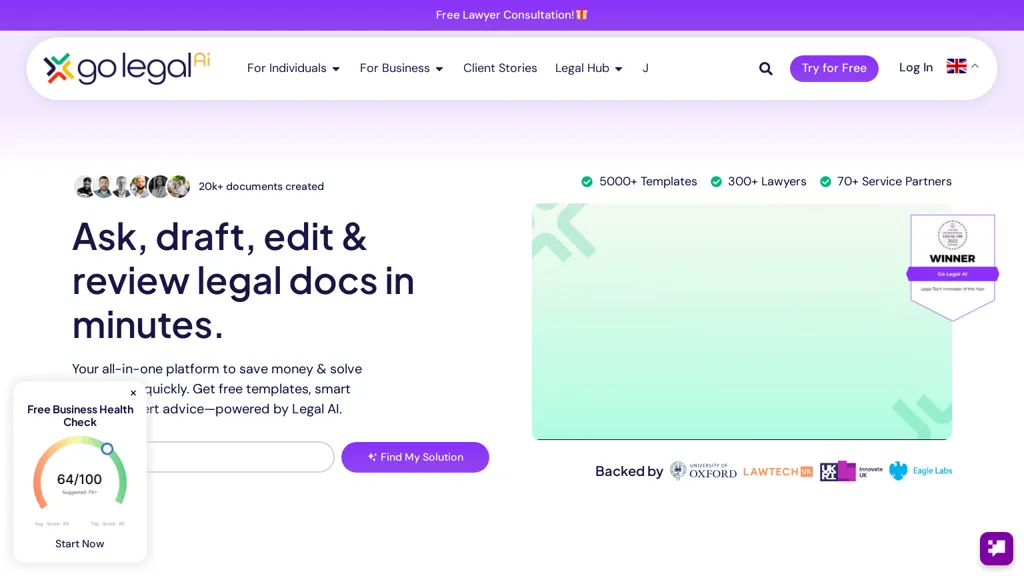
When running a business, legal compliance is a critical component for success. From tax regulations to employee rights, every industry has its own set of rules and guidelines that must be followed. This is where business legal compliance tools come in. These tools help ensure that your business stays on the right side of the law, minimizing risks and avoiding penalties.
Why Are Legal Compliance Tools Important?
Legal compliance tools are vital because they help businesses stay up-to-date with regulations that change frequently. Whether you're dealing with environmental laws, health and safety regulations, or data protection standards, legal compliance tools provide automated solutions to keep businesses compliant without needing to manually track every change in legislation. This reduces the chance of overlooking critical requirements, which could result in costly fines.
Types of Business Legal Compliance Tools
- Regulatory Monitoring Tools
Regulatory monitoring tools are designed to track changes in laws and regulations relevant to your business. These tools provide real-time updates and alerts about new policies, ensuring you stay informed of any legislative changes. With automated tracking, businesses can adjust their operations accordingly and remain compliant without wasting valuable time. - Contract Management Systems
Contract management tools are essential for businesses that deal with a lot of contracts, from employee agreements to vendor contracts. These systems help store, track, and manage contracts efficiently, making it easier to ensure that terms are compliant with current legal standards. This type of tool reduces the risk of overlooked clauses that could lead to legal disputes. - Compliance Training Platforms
Ensuring that employees understand compliance is a critical part of running a business. Compliance training tools provide businesses with the means to educate their workforce on legal requirements, including data privacy, anti-discrimination laws, and workplace safety. These platforms make it easy to schedule and monitor training sessions for employees, ensuring that everyone is aware of their responsibilities. - Data Privacy Tools
Data privacy is a growing concern in today’s digital world. Tools that help businesses comply with data protection regulations, like the GDPR or CCPA, are essential. These tools help businesses manage and protect sensitive customer data, ensuring that it’s handled in a compliant manner. They also help organizations respond quickly to data breaches, reducing the potential impact on both customers and the business itself. - Tax Compliance Software
Navigating the complex world of tax laws can be overwhelming for many businesses. Tax compliance tools simplify the process by automating tax calculations, filing deadlines, and ensuring that tax returns are submitted in compliance with relevant laws. This reduces the risk of errors, which could otherwise lead to expensive fines or audits.
Benefits of Using Legal Compliance Tools
- Reduced Risk of Legal Penalties
One of the most significant benefits of legal compliance tools is the reduced risk of facing penalties. These tools help ensure that businesses meet all legal requirements, preventing fines and lawsuits from regulatory bodies. - Increased Efficiency
Legal compliance tools automate many processes that would otherwise require manual oversight. This increases efficiency and reduces the workload for staff, allowing businesses to focus on their core operations. - Improved Reputation
A business that is legally compliant has a better reputation among customers, clients, and investors. Trust is an essential element in business relationships, and maintaining compliance is a strong indicator that a company values integrity and ethical practices.
How to Choose the Right Business Legal Compliance Tools
When selecting legal compliance tools, it’s essential to consider your business’s specific needs. Some factors to keep in mind include:
- Scalability: Ensure that the tool can grow with your business, particularly if you plan to expand internationally or into new sectors.
- User-Friendliness: Choose tools that are easy to use and integrate well with your existing systems. Complex tools can lead to frustration and decreased productivity.
- Customizability: Your business may have unique compliance requirements. A tool that can be tailored to your needs is a great investment in the long run.
Conclusion
Business legal compliance tools are not just a luxury; they are a necessity for businesses that wish to operate smoothly and legally. With the right tools, you can stay informed of ever-changing regulations, reduce risks, and improve efficiency. By choosing the tools that align with your business's needs, you can ensure that your business remains compliant and continues to thrive in an increasingly regulated environment.